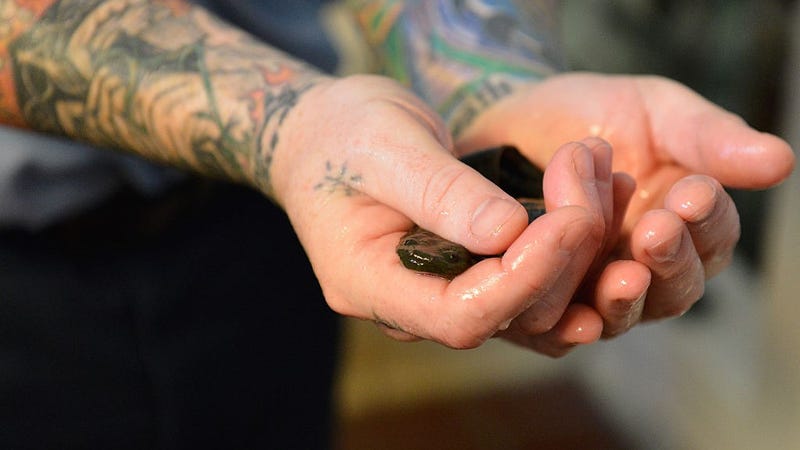
Blue-spotted salamanders are not an endangered species, but the creatures native to Great Lakes states, the northeast, and some parts of Canada are an indicator species that can inform people about the environment.
So when 23-year-old Eli Bieri noticed a number of the salamanders in Marquette, Michigan being run over by cars while they migrated from forests to wetlands in 2018, he knew he had to do something to help.
Bieri started a research project at Northern Michigan University to track how many salamanders were getting killed by people driving and just not noticing them in the road around Presque Isle Park.
The group determined that nearly 400 salamanders were killed during their migration in 2019, according to The Washington Post.
In 2020, the research prompted the city of Marquette to close down a quarter-mile of the park's main road from 8 a.m. to 8 p.m. while the salamanders migrated, and the results paid off. Bieri and the research team said that only three salamanders were killed by cars that year.
Now, Marquette is continuing to close a portion of Peter White Drive in Presque Isle Park from the same times to protect the salamanders. The road closure began on March 21 and will go until about April 30, depending how long the salamanders' migration takes to complete, according to the Associated Press.
Residents can now leave their cars and walk over to the closed off section to check out the salamanders. Bieri, an ecology student, told The Washington Post that he "always loved salamanders" and seeing them get killed upset him, but he's proud his research project is now helping the creatures migrate safely.
"Most people didn’t even know they were there," Bieri said. "I was happy to help share that magic."
Kathleen Henry, Superior Watershed Partnership special projects coordinator and education specialist, told The Mining Journal in an email just how important it is to protect and save the salamanders.
"Protecting the blue-spotted salamanders' migration is vital, as they are an indicator species, informing us about the health of our environment," Henry said.
On March 23, the Superior Watershed Partnership posted a flyer to Facebook called "Salamander Days," outlining some events throughout the month for the migration period and gave further instructions on how to safely observe the salamanders without harming them.


